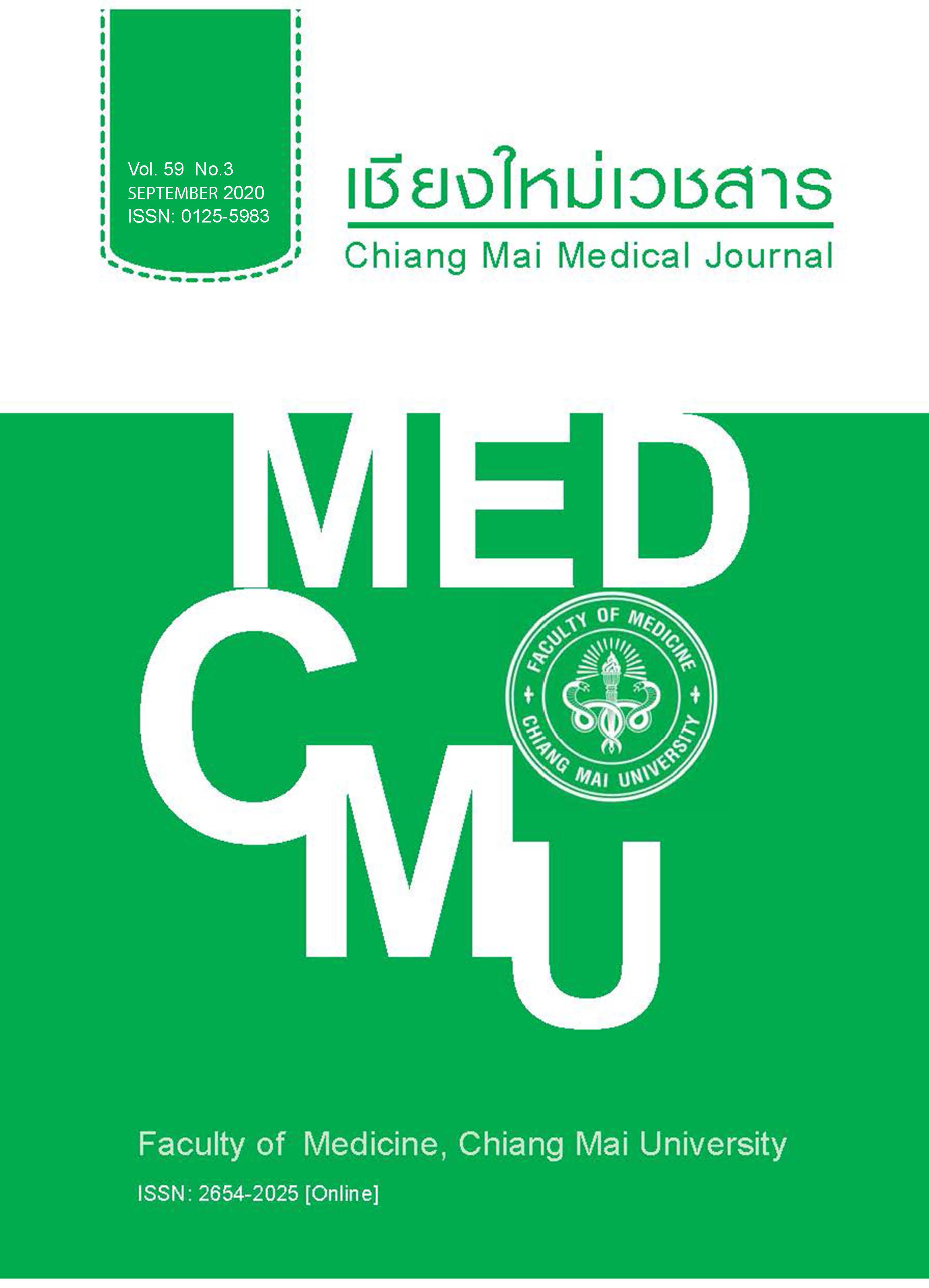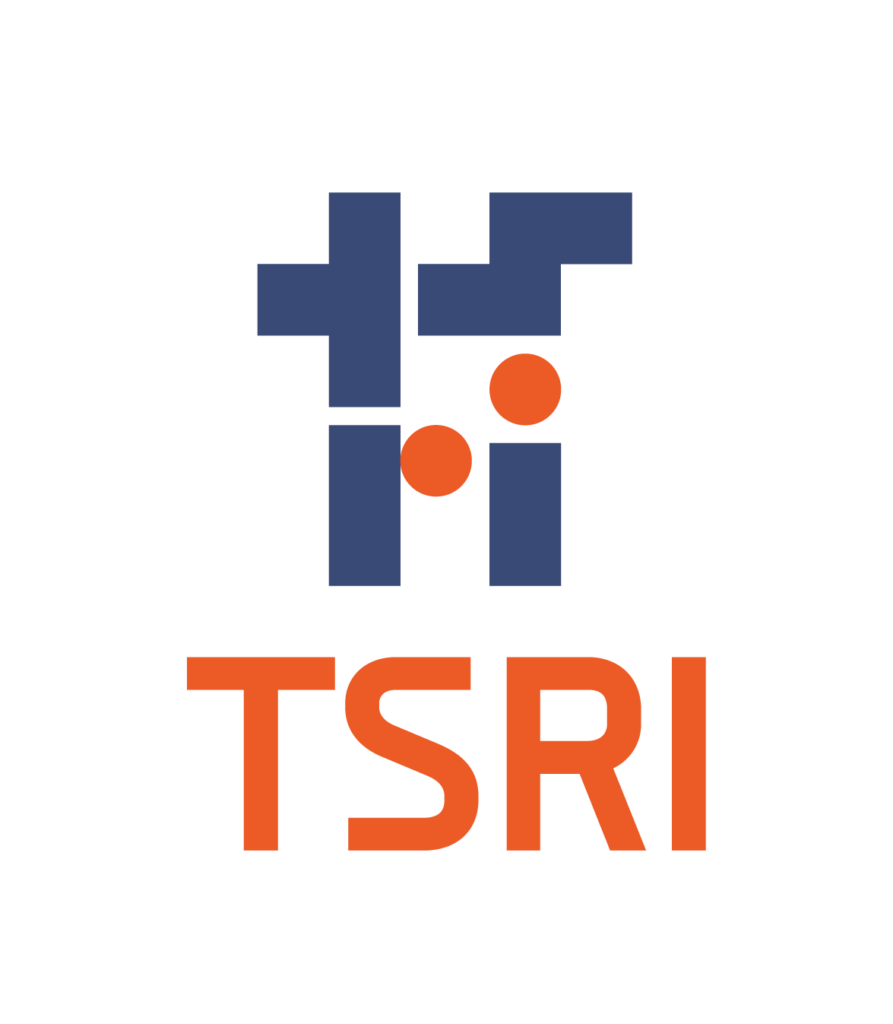Effects of teach-back on the knowledge, self-care behaviors, and hospital readmission among people with chronic heart failure
Keywords:
teach-back education method, heart failure, knowledge, self-care behaviorsAbstract
Objectives The purpose of this study was to compare teach-back education method versus standard education, on the knowledge, self-care behaviors, and hospital readmission among people with chronic heart failure.
Methods Two groups experimental research with a pre-test and a post-test. Through purposive sampling, 56 chronic heart failure patients were recruited as participants. All of the patients were receiving treatment at the heart failure clinic of Maharaj Nakorn Chiang Mai Hospital. The interven-tion group received HF education using teach-back. The control group received the standard care. The tracking for study results was scheduled after four weeks. Instruments for this study included the guidelines on teach-back methods for people with chronic heart failure. The instruments used for this evaluation included the knowledge test and assessment on self-care behaviors among people with chronic heart failure. The data were analyzed using descriptive statistics, independent t-test, and paired t-test.
Results In the intervention group, the knowledge and self-care behavior significantly improve (p < 0.001, p < 0.001). Mean scores change for knowledge and self-care showed greater improvement in the intervention group when compared with the control group (p < 0.002, p < 0.001). The mean of the number of hospital readmissions between the intervention group and the control group after teaching was not different.
Conclusion The finding from this study was encouraging to support the effect of teach-back technique on knowledge retention and self-care behaviors of HF. It is recommended that nurses apply teach-back education method, in order to increase patient’ knowledge and self-care behavior, as this is a direct role of registered nurses.
References
Go AS, Mozaffarian D, Roger VL, Benjamin EJ, Berry JD, Borden WB, et al. Heart disease and stroke statistics update: a report from the American Heart Association. Circulation. 2013;127:e6-e245. doi: 10.1161/CIR.0b013e31 828124ad.
Krumholz HM, Merrill AR, Schone EM, Schreiner GC, Chen J, Bradley EH, et al. Patterns of hospital performance in acute myocardial infarction and heart failure 30-day mortality and readmission. Circ Cardiovasc Qual Outcomes. 2009;2:407–13.
Chin MH, Goldman L. Factors contributing to the hospitalization of patients with congestive heart failure. Am J Public Health. 1997; 87:643-8
Ghali JK, Kadakia S, Cooper R, Ferlinz J. precipitating factors leading to decompensation of Heart Failure. Traits among Urban blacks. Arch Intern Med. 1988;148:2013-6.
Braunstein JB, Anderson GF, Gerstenblith G, Weller W, Niefeld M, Herbert R, et al. Noncardiac comorbidity increases preventable hospitalizations and mortality among Medicare beneficiaries with chronic heart failure. J Am Coll Cardiol. 2003;42:1226-33.
Jaarsma T, Abu-Saad HH, Dracup K, Halfens R. Self-care behaviour of patients with heart failure. Scand J Caring Sci. 2000;14:112-9.
van der Wal MH, Jaarsma T, Moser DK, Veeger NJ, van Gilst WH, van Veldhuisen DJ. Compliance in heart failure patients: the importance of knowledge and beliefs. Eur Heart J. 2006;27:434-440.
Sommit A, Wannapornsiri C, Thamaree S. The effect of supportive and educative nursing system program on self-care agency in patients with heart failure. Journal of Nursing and Health Sciences. 2011;5:55-66. [in Thai]
Amaritakomol A, Kanjanavanit R, Suwankru- hasn N, Topaiboon P, Leemasawat K, Chan- chai R, et al. Enhancing knowledge and selfcare behavior of heart failure patients by interactive educational board game. Game Health J. 2019; 8:177-86.
Caplin M, Saunders T. Utilizing Teach-Back to Reinforce Patient Education: A Step-by-Step Approach. Orthop Nurs. 2015;34:365-8;
Always use teach-back [Internet]. Using teach-back toolkit. [cited 2014 July 11]. Available from: http://www.teachbacktraining.org/using-the-teach-back-toolkit.
Ha Dinh TT, Bonner A, Clark R, Ramsbotham J, Hines S. The effectiveness of the teach-back method on adherence and self-management in health education for people with chronic disease: a systematic review. JBI Database System Rev Implement Rep. 2016;14:210-47.
Madineh D, Nasrin E, Shahram B, and Seyed ML. The effects of group Education with the Teach-Back method on hospital readmission rates of heart failure patients. Jundishapur J Chronic Dis Care. 2016;5:e30377.
White M, Garber R, Carroll M, Brinker E, Howie-Esquivel J. Is “Teach Back” associated with knowledge retention and hospital readmission in hospitalized heart failure patients? J Cardiovasc Nurs. 2013;28:137-46.
Narjes B, Sharareh S, Ali D N, Mahdi M. Effectiveness of the teach-back method in improving self-care activities in postmenopausal women. Prz Menopauzalny. 2018;17:5-10.
Oh EU, Lee HJ, Yang YL, Kim YM. Effectiveness of discharge education with the teach-back method on 30-day readmission: A systematic review. J Patient Saf. 2019;13:17.
Arora S, Patel P, Lahewala S, Patel N, Patel NJ, Thakore K, et al. Etiologies, Trends, and Predictors of 30-Day readmission in patients with heart failure. Am J Cardiol. 2017;119:760-9.
Downloads
Published
How to Cite
Issue
Section
License

This work is licensed under a Creative Commons Attribution-NonCommercial-NoDerivatives 4.0 International License.










